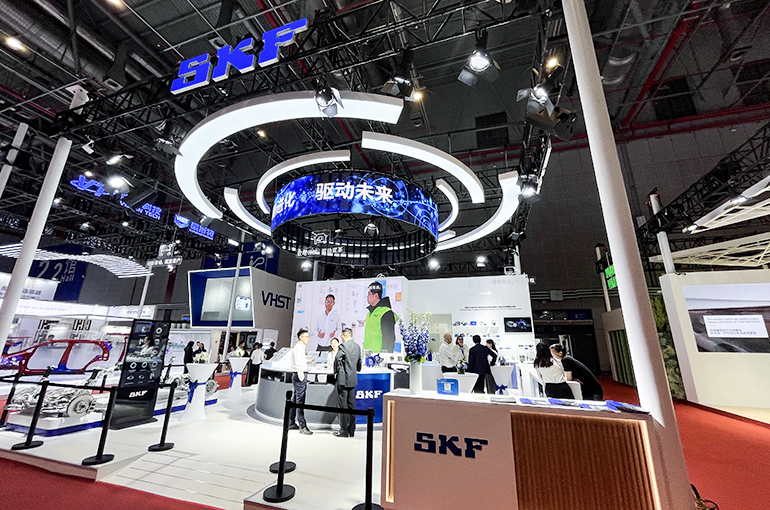 Foreign Car Parts Makers Ramp Up Presence at Shanghai Auto Show Amid Fierce Competition
Foreign Car Parts Makers Ramp Up Presence at Shanghai Auto Show Amid Fierce Competition(Yicai) April 28 -- Overseas automotive component suppliers have significantly stepped up their presence at this year’s Shanghai Auto Show, compared with previous years, as intense competition in China’s car market and the rapid rise of local smart parts suppliers, prompts these global firms to adopt a more pro-active approach and to get closer to their clients.
This year’s automotive tech and supply chain sections span an exhibition area of around 100,000 square meters, taking up nearly a third of the entire show, according to data from the event organizer. Both the number of parts suppliers and the size of their booths have noticeably increased from previous expos.
“In past years, there were always a few empty booths in the parts pavilion, but this year, it’s completely full,” an employee at a multinational parts company who has attended the show for many years told Yicai. His company’s booth has more than doubled in size this year to allow it to showcase more of its latest products.
As competition becomes stiffer, parts suppliers must get closer to consumers and the markets if they want to amplify their influence, said Gu Jianmin, chief technology officer of French parts maker Valeo’s China arm.
“Instead of waiting for automakers to place orders, suppliers need to get out there and better understand the market trends. In other words, I need to know what our competitors are doing, and then do it better and faster,” he added.
China remains the most dynamic and fastest-growing auto market in the world, said Jim Voss, chief executive officer of the US’ Tenneco. Any company aiming for global success has to succeed in China first. And rapid response to market demands is a decisive factor here.
“Unity has already set up both product delivery and research and development teams in China,” said Zhang Junbo, general manager of the US software developer’s China business. “Our staff need to be stationed at automakers to ensure that any issues are spotted and fixed immediately. This also allows us to rapidly improve our products. It is an advantage that foreign software companies operating solely from overseas cannot easily match.”
Local Operations
Global auto parts suppliers are doubling down on their efforts to build strong local operations in the country despite the intense competition. This is because China is not just the world’s largest car market, it’s also a hotspot for adopting cutting-edge tech.
Many multinational car parts suppliers are taking their localization strategies to a new level, Yicai learned from interviews at the auto show. And it is a key reason why these companies remain resilient even amid global trade tensions.
Over 85 percent of ZF Group’s raw materials in China are already locally sourced, and the company is aiming for 100 percent within the next two years, said Wang Runyi, president of the German firm’s China arm. For example, Friedrichshafen-based ZF is actively working with Chinese chipmakers to expedite localized procurement, although there are certain products where external factors hinder the localization of supply, he added.
China is not only the biggest car market in the world but it is also becoming a "fitness center" for the global auto industry, said Valeo CEO Christophe Périllat. This is because China is leading the application of critical technologies, from electric cars, autonomous driving and advanced driver-assistance systems to infotainment and smart lighting.
That’s why Valeo’s strategy has always been, and will continue to be, “to be Chinese in China,” said Périllat. This means not just producing in China for the Chinese market, but also innovating and creating in China.
Valeo plans to open a new factory in Shanghai in the second half that will be dedicated to making smart auto components such as autonomous driving cameras, LiDAR systems, domain controllers and integrated chips, Périllat said.
Editors: Tang Shihua, Kim Taylor